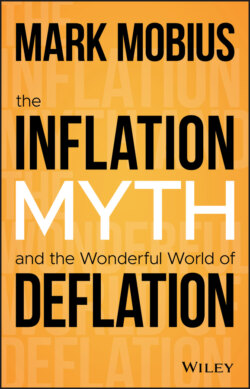Читать книгу The Inflation Myth and the Wonderful World of Deflation - Mark Mobius - Страница 16
Money and Trust
ОглавлениеInterviewed for a BBC series, the former Governor of the Bank of England, Mervyn King, said: “Money was invented in order to get around the problems of trusting other individuals. But then the question is, could you trust the person who issued the money?” Pressed on whether paper currency was always a flawed system by nature, King was curiously circumspect: “If you'd asked me four, five years ago, before the financial crisis, I would have said no. I think we've now worked out how to manage paper money.” Perhaps in the light of the financial crisis, we should be a bit more cautious, and maybe, to quote Zhou Enlai, another great Chinese figure who when asked about the impact of the French Revolution supposedly said: “, it's too soon to tell.”
Maybe we should say about paper money, after 700 years, that it is perhaps too soon to tell. The point about paper money and inflation is, in fact, a wider one: namely that, over time, no currency keeps its value. This is a fact reinforced by the inability of governments of all stripes to resist the temptation to expand the money supply when the need (or in some cases, the greed) arises. I've used China as an example here because paper money was developed there first, but the same situation can be seen in any economy.
For many years Franz Pick, an Austrian School economist, studied currencies around the world. I remember receiving his annual currency yearbook which had information regarding all the world's currencies. He continued to study currencies all his life. He was the one who said: “No currency holds its value” and was a believer in gold as the best foundation for currency since his experience and studies showed that without a specific commodity base, such as gold, governments would always devalue their currencies.
